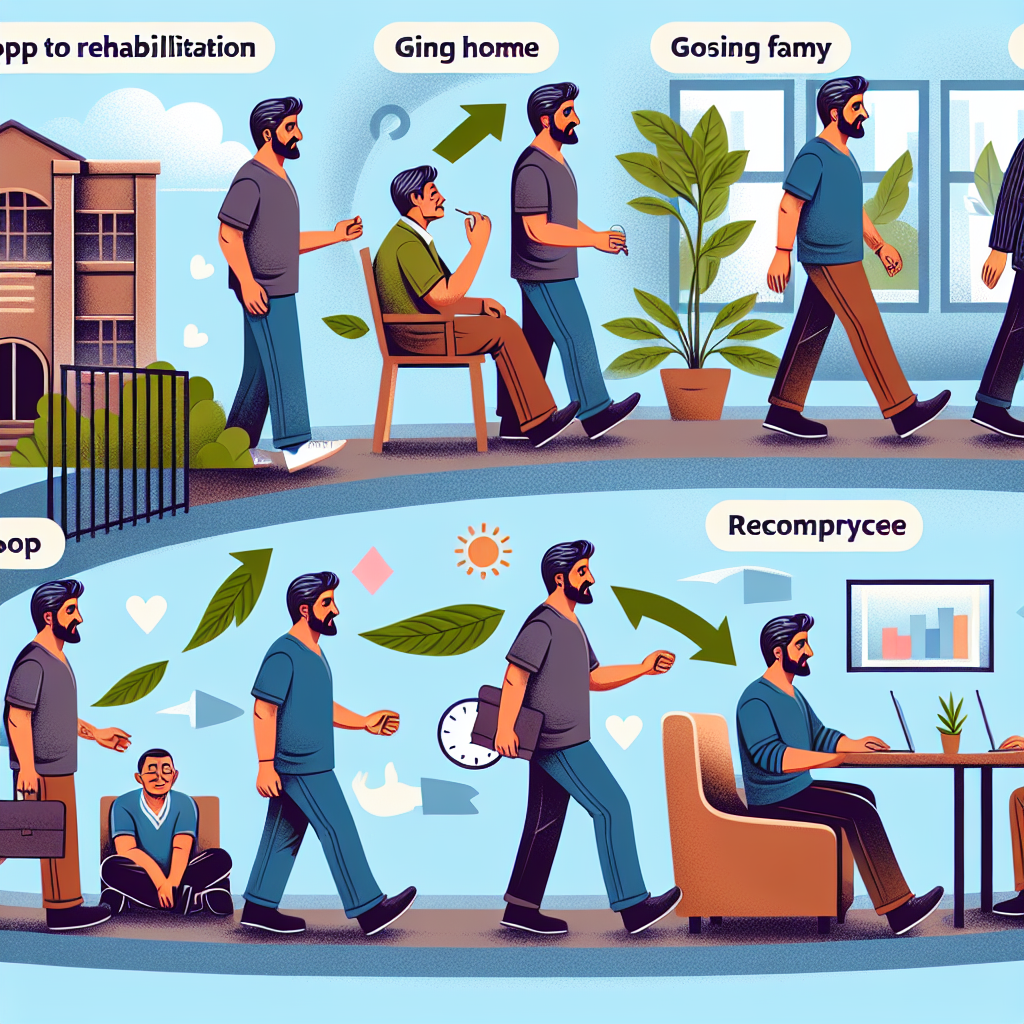-
Table of Contents
“From Darkness to Dawn: Stories of Triumph Over Cocaine Addiction”
Introduction
Personal accounts of overcoming cocaine addiction provide powerful and intimate insights into the struggles and triumphs faced by individuals battling this debilitating substance. These narratives often reveal the profound physical, emotional, and psychological challenges encountered during addiction and the arduous journey towards recovery. Through personal stories, readers gain a deeper understanding of the complexities of addiction, the impact on relationships and daily life, and the resilience required to reclaim one’s life. These accounts serve as both a source of inspiration and a testament to the human spirit’s capacity for change, offering hope and guidance to those still grappling with addiction and those supporting them.
Journey to Sobriety: My Battle with Cocaine Addiction
The journey to sobriety is often fraught with challenges, but personal accounts of overcoming cocaine addiction can serve as powerful beacons of hope. One such story is that of John, a man who found himself ensnared in the grip of cocaine addiction but ultimately emerged victorious. His battle with cocaine began innocuously enough, as it often does, with casual use at social gatherings. However, what started as a recreational activity quickly spiraled into a dependency that consumed his life.
John’s descent into addiction was marked by a series of increasingly destructive behaviors. He began to isolate himself from friends and family, his work performance suffered, and his health deteriorated. Despite these warning signs, he found it difficult to break free from the cycle of addiction. The turning point came when he hit rock bottom, losing his job and facing the very real possibility of losing his family. It was at this moment of despair that John realized he needed to make a change.
Seeking help was the first and most crucial step in John’s journey to sobriety. He reached out to a local support group, where he found a community of individuals who understood his struggles and offered unwavering support. Through group therapy sessions, John began to confront the underlying issues that had fueled his addiction. He learned that his cocaine use was a way to cope with stress and emotional pain, and he started to develop healthier coping mechanisms.
In addition to group therapy, John also sought individual counseling. This one-on-one support allowed him to delve deeper into his personal history and uncover the root causes of his addiction. His therapist helped him to identify triggers and develop strategies to avoid them. This process was not easy, and there were moments when John felt overwhelmed by the enormity of the task ahead. However, he remained committed to his goal of sobriety, drawing strength from the progress he had already made.
As John continued on his path to recovery, he also made significant lifestyle changes. He began to prioritize his physical health, incorporating regular exercise and a balanced diet into his routine. These changes not only improved his physical well-being but also had a positive impact on his mental health. John found that exercise became a new outlet for stress relief, replacing the destructive habits of his past.
Another key aspect of John’s recovery was rebuilding relationships with his loved ones. He reached out to family and friends, seeking their forgiveness and support. This process of reconciliation was not without its challenges, but it was an essential part of his healing journey. By mending these relationships, John was able to create a strong support network that would help him maintain his sobriety in the long term.
John’s story is a testament to the power of resilience and the importance of seeking help. His journey to sobriety was not a linear path, but rather a series of steps forward and occasional setbacks. However, through determination, support, and a willingness to confront his demons, John was able to overcome his cocaine addiction and reclaim his life.
For those who find themselves in a similar struggle, John’s story serves as a reminder that recovery is possible. It is a journey that requires courage, perseverance, and the support of others, but it is a journey that can lead to a brighter, healthier future. By sharing his experience, John hopes to inspire others to take that first step towards sobriety and to believe in their own capacity for change.
From Darkness to Light: Overcoming Cocaine Dependency
Cocaine addiction is a formidable adversary, one that can consume lives and shatter dreams. However, the journey from darkness to light is not only possible but also profoundly transformative. Personal accounts of overcoming cocaine addiction serve as powerful testaments to human resilience and the capacity for change. These stories illuminate the path to recovery, offering hope and inspiration to those still ensnared by the grip of addiction.
One such story is that of Sarah, a young woman whose life spiraled out of control due to her cocaine dependency. Sarah’s descent into addiction began innocuously enough, with recreational use at social gatherings. However, what started as occasional indulgence quickly escalated into a daily necessity. Her relationships deteriorated, her career faltered, and her health declined. It was only when she hit rock bottom, facing the loss of everything she held dear, that she realized the need for change. With the support of her family and a dedicated therapist, Sarah embarked on the arduous journey of recovery. Through intensive therapy, she confronted the underlying issues that had fueled her addiction, gradually rebuilding her life. Today, Sarah is not only sober but also an advocate for addiction recovery, using her experience to help others find their way out of the darkness.
Similarly, John’s story underscores the importance of community and support in overcoming cocaine addiction. John, a successful businessman, found himself trapped in a cycle of substance abuse that threatened to destroy his career and family life. Despite numerous attempts to quit on his own, he repeatedly relapsed, each time sinking deeper into despair. It was only when he joined a support group that he began to see a glimmer of hope. Surrounded by individuals who understood his struggle, John found the strength to confront his addiction head-on. The camaraderie and shared experiences within the group provided him with the encouragement and accountability he needed to stay on the path to recovery. Today, John credits his sobriety to the unwavering support of his peers and the realization that he was not alone in his battle.
Transitioning to another inspiring account, we find Maria, whose journey highlights the role of holistic approaches in overcoming addiction. Maria’s addiction to cocaine was intertwined with a history of trauma and mental health issues. Traditional treatment methods had limited success, leaving her feeling hopeless. However, a holistic rehabilitation center offered a different approach, integrating therapy with mindfulness practices, physical exercise, and nutritional counseling. This comprehensive treatment plan addressed not only her addiction but also the underlying emotional and physical imbalances. Through this multifaceted approach, Maria found a sense of peace and purpose that had eluded her for years. Her recovery was not just about abstaining from cocaine but about healing as a whole person. Today, Maria is a testament to the power of holistic healing, living a balanced and fulfilling life.
These personal accounts of overcoming cocaine addiction illustrate that recovery is a multifaceted journey, often requiring a combination of therapy, support, and holistic care. They remind us that while the path to sobriety is fraught with challenges, it is also paved with opportunities for growth and transformation. Each story is a beacon of hope, demonstrating that no matter how deep the darkness, there is always a way to the light. By sharing these experiences, we can inspire others to take the first step towards recovery, fostering a community of support and understanding for those battling addiction.
Reclaiming My Life: A Personal Story of Beating Cocaine Addiction
Reclaiming My Life: A Personal Story of Beating Cocaine Addiction
In the depths of addiction, it often feels as though there is no way out. The grip of cocaine can be relentless, pulling individuals into a cycle of dependency that seems impossible to break. However, personal stories of overcoming this powerful addiction serve as beacons of hope, illustrating that recovery is not only possible but also transformative. One such story is that of John, whose journey from the throes of addiction to a life of sobriety is both inspiring and instructive.
John’s descent into addiction began innocuously enough. What started as recreational use at social gatherings quickly spiraled into a daily necessity. The euphoria that cocaine initially provided soon gave way to a relentless craving, overshadowing every aspect of his life. Relationships with family and friends deteriorated, and his career suffered as his focus shifted entirely to obtaining and using the drug. Despite the mounting consequences, John found himself unable to break free from the cycle of addiction.
The turning point came when John hit rock bottom. After a particularly harrowing experience that left him physically and emotionally drained, he realized that he could no longer continue down this path. It was at this moment of clarity that he decided to seek help. Transitioning from the decision to action, John reached out to a local rehabilitation center, marking the beginning of his journey to recovery.
Entering rehab was a daunting step, but it was also a crucial one. The structured environment provided John with the support and resources he needed to confront his addiction head-on. Through a combination of therapy, counseling, and medical intervention, he began to understand the underlying issues that had fueled his substance abuse. This period of introspection was challenging, yet it was also profoundly liberating. For the first time in years, John felt a glimmer of hope.
As John progressed through his treatment, he learned the importance of building a strong support network. Connecting with others who had faced similar struggles provided him with a sense of camaraderie and understanding. These relationships became a cornerstone of his recovery, offering encouragement and accountability. Additionally, John discovered the value of developing healthy coping mechanisms. Exercise, meditation, and creative outlets such as writing and painting became integral parts of his daily routine, helping him to manage stress and avoid relapse.
The journey to sobriety was not without its setbacks. There were moments of doubt and temptation, but John remained steadfast in his commitment to reclaiming his life. Each small victory, whether it was a day without using or a positive interaction with a loved one, reinforced his resolve. Over time, these victories accumulated, leading to a profound transformation.
Today, John is a testament to the power of resilience and determination. He has rebuilt his relationships, reestablished his career, and most importantly, regained his sense of self-worth. His story serves as a powerful reminder that no matter how deep the abyss of addiction may seem, there is always a way out. By seeking help, embracing support, and committing to change, individuals can overcome even the most formidable challenges.
In sharing his journey, John hopes to inspire others who are struggling with addiction. He wants them to know that recovery is possible and that they are not alone. His experience underscores the importance of reaching out for help and believing in the possibility of a brighter future. Through perseverance and support, reclaiming one’s life from the clutches of addiction is not just a dream but a reality within reach.
Triumph Over Temptation: How I Conquered Cocaine Abuse
Triumph Over Temptation: How I Conquered Cocaine Abuse
In the throes of addiction, it often feels like there is no way out. The grip of cocaine can be relentless, pulling you deeper into a cycle of dependency and despair. However, personal accounts of overcoming cocaine addiction serve as a beacon of hope, illustrating that recovery is not only possible but also transformative. My journey through addiction and into sobriety is a testament to the power of resilience, support, and self-discovery.
The descent into cocaine addiction was gradual but insidious. What began as recreational use at social gatherings quickly spiraled into a daily necessity. The euphoria that cocaine initially provided masked the growing void within me, a void that seemed to expand with each use. It wasn’t long before my life began to unravel. Relationships with family and friends deteriorated, my career suffered, and my health took a significant hit. Despite these glaring red flags, the fear of withdrawal and the allure of the next high kept me chained to my addiction.
The turning point came when I hit rock bottom. It was a moment of stark clarity, a realization that if I continued down this path, I would lose everything. This epiphany was both terrifying and liberating. It was the catalyst I needed to seek help. Admitting that I had a problem was the first and most crucial step in my recovery journey. It required immense courage to confront my demons and acknowledge the damage I had inflicted upon myself and those around me.
Entering a rehabilitation program was a pivotal decision. The structured environment provided a safe space to detox and begin the healing process. The support from counselors and fellow recovering addicts was invaluable. Sharing our stories and struggles created a sense of camaraderie and understanding that was both comforting and motivating. Through therapy, I began to unravel the underlying issues that had fueled my addiction. It was a painful but necessary process of self-examination and growth.
One of the most significant aspects of my recovery was learning to cope with triggers and cravings. Developing healthy coping mechanisms was essential in maintaining sobriety. Exercise, meditation, and creative outlets became integral parts of my daily routine. These activities not only helped to manage stress but also provided a sense of accomplishment and purpose. Building a support network of sober friends and mentors was equally important. Their encouragement and accountability were instrumental in navigating the challenges of early recovery.
As I progressed in my journey, I discovered the importance of setting realistic goals and celebrating small victories. Each day of sobriety was a triumph, a testament to my strength and determination. Over time, the fog of addiction lifted, revealing a clearer, more vibrant world. I began to rebuild my life, mending broken relationships and pursuing new opportunities with a renewed sense of vigor.
Today, I stand as a testament to the possibility of recovery. My journey was fraught with obstacles, but each challenge was an opportunity for growth and self-discovery. Overcoming cocaine addiction has been the most arduous yet rewarding endeavor of my life. It has taught me the value of resilience, the power of support, and the importance of self-love. For anyone struggling with addiction, know that recovery is within reach. It requires courage, commitment, and a willingness to seek help, but the rewards are immeasurable. The journey to sobriety is not easy, but it is undoubtedly worth it.
Q&A
1. **Question:** What are common triggers for relapse in individuals recovering from cocaine addiction?
**Answer:** Common triggers for relapse include stress, exposure to environments or people associated with past drug use, emotional distress, and social pressures.
2. **Question:** What role does therapy play in overcoming cocaine addiction?
**Answer:** Therapy, such as cognitive-behavioral therapy (CBT), helps individuals identify and change negative thought patterns and behaviors, develop coping strategies, and address underlying issues contributing to addiction.
3. **Question:** How important is a support system in the recovery process from cocaine addiction?
**Answer:** A strong support system, including family, friends, and support groups, is crucial for providing emotional support, accountability, and encouragement throughout the recovery process.
4. **Question:** What are some effective strategies individuals use to maintain sobriety after overcoming cocaine addiction?
**Answer:** Effective strategies include avoiding triggers, engaging in healthy activities, attending regular therapy or support group meetings, setting and achieving personal goals, and maintaining a healthy lifestyle.
Conclusion
Personal accounts of overcoming cocaine addiction often highlight the profound challenges and transformative journeys individuals face. These narratives typically underscore the importance of strong support systems, whether through family, friends, or professional counseling. Many recount the necessity of a multifaceted approach, combining medical treatment, therapy, and lifestyle changes. The stories frequently emphasize the role of personal determination and the development of coping mechanisms to handle triggers and stress. Ultimately, these accounts serve as powerful testimonies to the possibility of recovery, offering hope and inspiration to others struggling with addiction.



